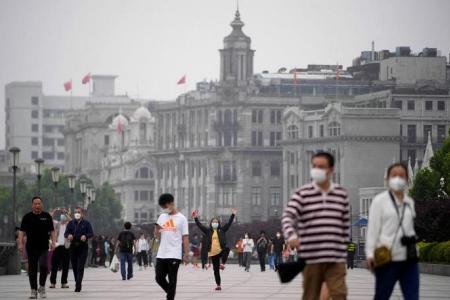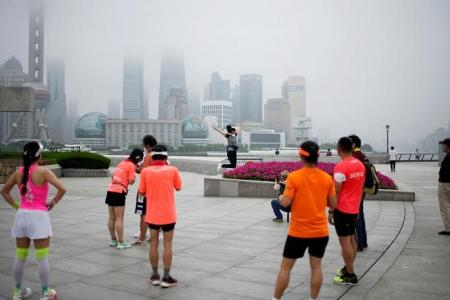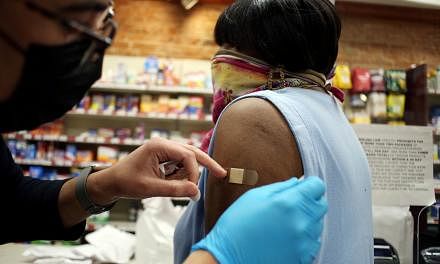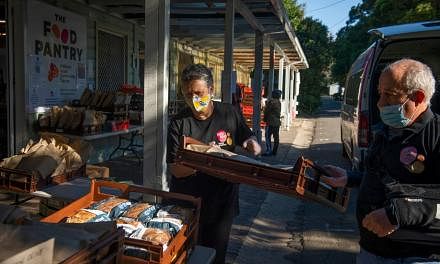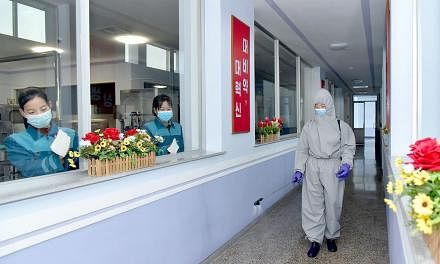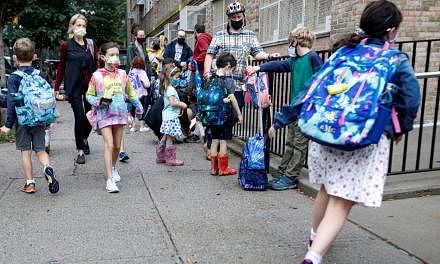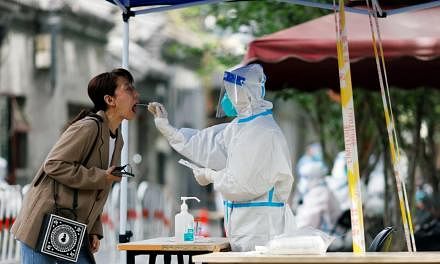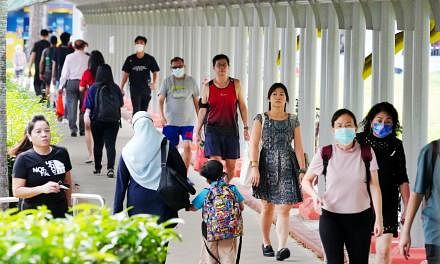Shanghai reopens cautiously after two-month Covid-19 lockdown
SHANGHAI - China's largest city lurched back to life on Wednesday (June 1) after a frustrating two-month Covid-19 lockdown, with transport services resuming and most residents finally allowed out of their compounds.
There are, however, dozens of estates still closed off, many shops remain shut and dining out is still banned. Celebrations have been tempered by fears of a resurgence in coronavirus cases bringing on another lockdown.
The city's 25 million residents will now be able to drive their cars and take public transport, but will need to have a nucleic acid test done within the past 72 hours. Testing booths have been set up near every estate - a sign that China's harsh "zero Covid" policy is here to stay.
At the stroke of midnight, barriers were lifted across the city, allowing residents to exit residential compounds, while police reopened previously blocked roads allowing drivers to move between districts - previously barred under lockdown rules.
Social media videos showed some residents celebrating with sparklers while others were seen popping champagne.
Curbs have been lifted for about 22.5 million residents in "low-risk areas". They must still wear masks in public and avoid mass gatherings; shops can operate at 75 per cent capacity; gyms will open at a later date.
State broadcaster CCTV described it as a moment "that not just the people of Shanghai, but also many across the country have been waiting for".
"Let's snatch back the time that was lost to make up for the damage caused by the pandemic," said anchor Gang Qiang.
"Be firm in our confidence, be united in moving forward, believe that the lively, vibrant Shanghai that everyone is familiar with will be coming to us very soon."
China's most densely populated city had been stuck in limbo since late March when the government had initially tried to enforce targeted lockdowns of estates to deal with a wave of the highly infectious omicron variant of the virus, but expanded it to half the city, before ordering a citywide shut in from April 1.
The lockdown has resulted in massive economic losses and frustrations after businesses in the financial hub - also an important node in the country's logistics chain - was blocked off from the rest of China.
During the two months, residents had struggled to get food and medical care as the logistics network ground to a halt. Hospitals overwhelmed with Covid-19 cases turned patients away, while others were prevented from leaving their estates.
Hundreds of thousands were forced into centralised quarantine after being deemed close contacts, or having tested positive for the virus. Families were separated with children initially forced to quarantine separately from their parents, a policy reversed after a public outcry.
Offices and factories that remained opened - mostly government-linked companies and those deemed essential to economic function - had workers staying in a "closed loop" on site, with employees sharing beds, or others sleeping in sleeping bags under their office desks. Many are only now just allowed to return home.
Get The New Paper on your phone with the free TNP app. Download from the Apple App Store or Google Play Store now

